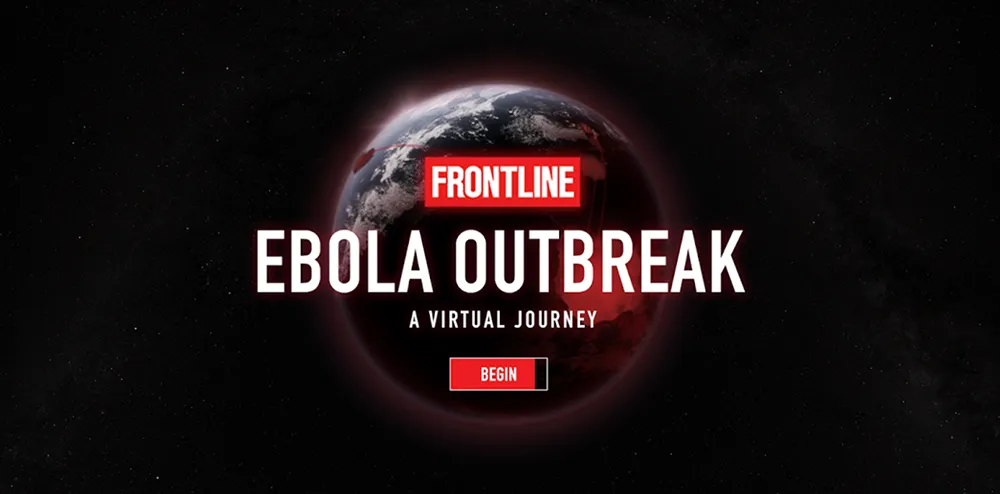PBS documentary series FRONTLINE and virtual reality journalism startup Emblematic Group will be working together on at least three journalism projects over the next year and a half as the organizations experiment and explore best practices for reporting in VR.
The Knight Foundation will be giving $580,000 to support the partnership.
Separately, FRONTLINE has released a VR documentary looking at the Ebola Outbreak (Android and iPhone) for Google Cardboard while the Emblematic Group has produced several pieces of VR journalism including one about Trayvon Martin (Android), also for Google Cardboard, that reconstructed events on the night he was killed from 911 recordings.
“There aren’t recognized protocols when it comes to virtual reality and journalism,” FRONTLINE leader Raney Aronson-Rath wrote in a blog post, adding “we will identify some key editorial, ethical and technical principles, and share them with the wider field so that both audiences and others helping develop these techniques can benefit from the collaboration.”
A wide variety of tools and approaches can be deployed in pursuit of VR journalism, but how well each of them can be used to capture truth is still unclear. The New York Times, for example, was criticized for the way 360-degree video was captured for a documentary about children who were driven from their homes by war. 360-degree cameras require the videographer to be out of the scene, for example, meaning the subject of the captured footage may have a different relationship with the journalist than with traditional reporting.
In an article about the efforts by NY Times Public Editor Margaret Sullivan, the news organization’s top editor Jake Silverstein is quoted as writing and saying the following:
V.R. usually involves more coordination between filmmaker and subject than in traditional video journalism…A subject may be asked to repeat an action, or wait until the filmmaker is out of sight to complete a task.
In a piece by Wired earlier this year Oculus co-founder Palmer Luckey also had this to say on the subject:
Until we have technology that can perfectly capture and recreate what’s going on in something like a war zone, there’s the potential for heavy-handed bias in how things are presented…
This is all to say that I look forward to seeing what FRONTLINE and Nonny de la Peña, the CEO of Emblematic Group, produce as a result of this partnership.


























